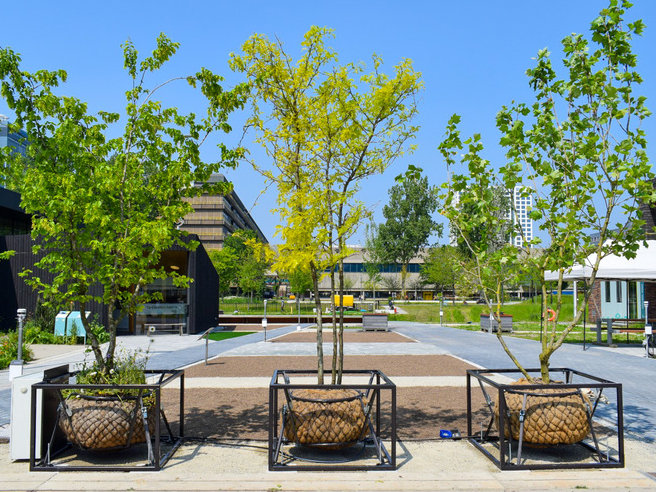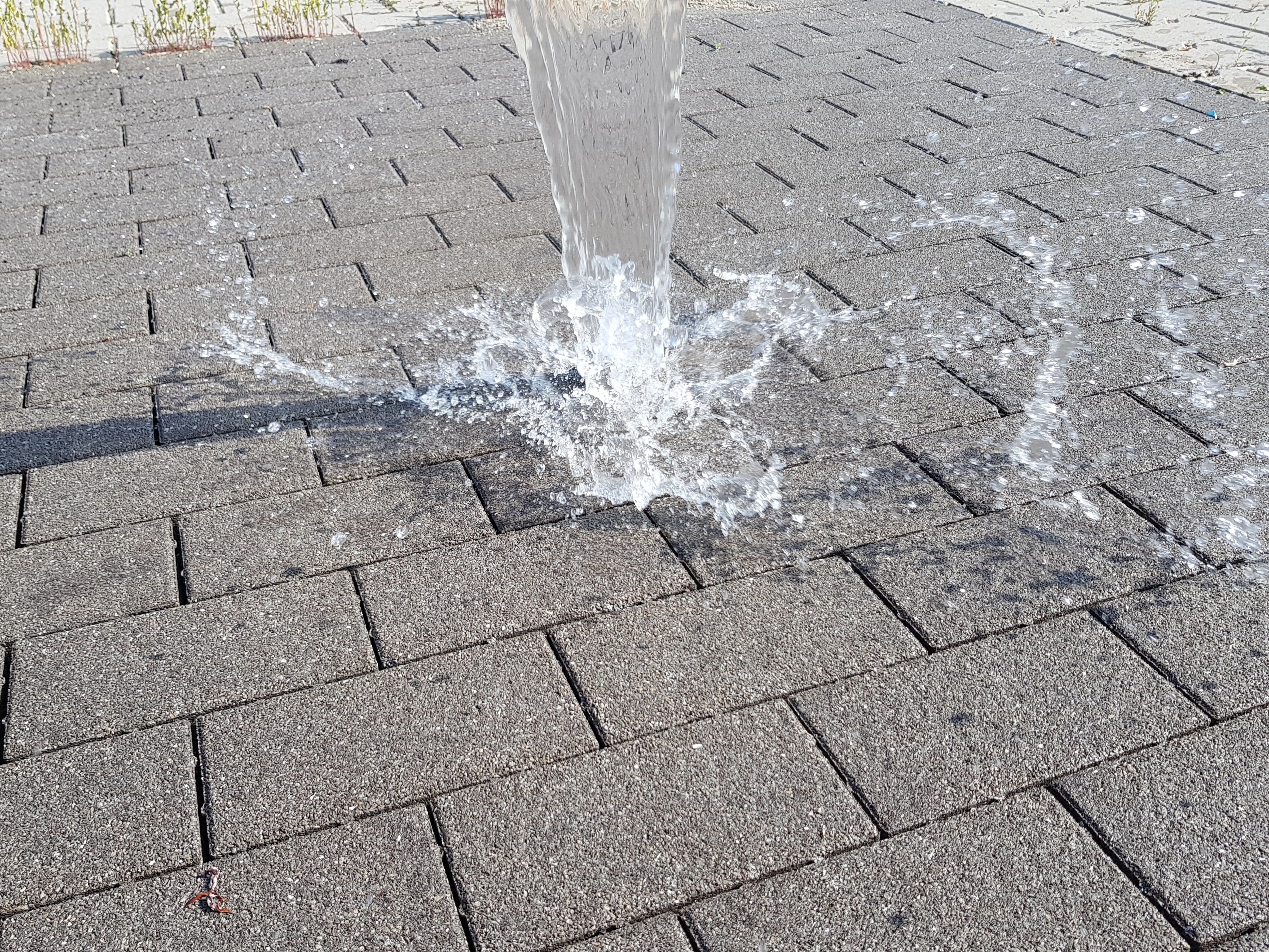Innovations at the Heat Square– How do we deal with heat in the city?
Climate change is leading to more summer and tropical days in the Netherlands. A densely built living environment with lots of hard surfaces is not suitable for this. Today, the physiological temperature in large cities in the Netherlands can reach up to 50 degrees. Thus, things have to change in many places. What can we do against this heat in cities? How should the cities of the future be designed?
Scientists at TU Delft, together with entrepreneurs, students and government bodies, will answer these questions at the ‘HittePlein’ (Heat Square): a small square like those found in towns and cities, surrounded by several buildings at The Green Village on TU Delft Campus. On this square, solutions against heat stress and drought are being developed. Until now, these innovations were tested separately. But what is the effect if you combine these solutions? And how do you ensure that the square retains its functions and mobility can continue?
Solutions for heat and drought
The Heat Square combines new solutions for heat and drought; from modular trees that provide cooling in the city to special bricks that allow water to pass quickly. This water can then be slowly absorbed by the subsoil or evaporate during hot periods, providing cooling. There are also water buffers that store rainwater during showers. This water comes in handy during periods of drought. More innovations at the Heat Square, can be found here.

The scientists
Scientists Marjolein van Esch, (urban micro-climate and climate adaptation), Martine Rutten, (water management and climate adaptation), Eva Stache (designer) and Miriam Coenders (hydrologist) will talk about their own expertise and investigate how squares and streets can be designed as comfortable habitats during heat waves. Marjolein van Esch discusses the importance of working together on this: "Given the speed of climate change and the complexity of the urban microclimate, it is important to look at it with many different disciplines and develop an integrated approach."
Campus as a living lab
TU Delft is opening its campus to new living labs for sustainability innovations. The Heat Square is one of TU Delft's initiatives to be carbon neutral, climate-adaptive and circular by 2030, with contribution on quality of life and biodiversity.
More information
More about the Heat Square.
More about the Heat Square in a documentary.
More about The Green Village.
More about heat in the city: press kit.
